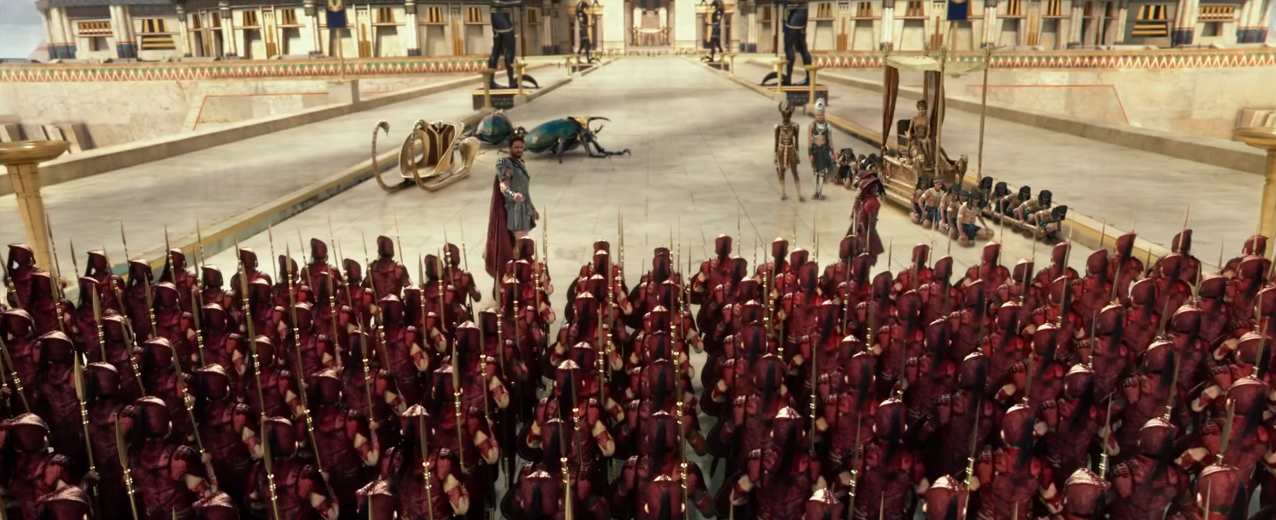If you like history or Egyptian mythology, Gods of Egypt will make you weep
The best historical films go to great efforts to accurately depict the era represented in their story. Gods of Egypt is not one of these. It tries so hard to impress, through dizzying and nauseating fight scenes between giant gods that transform into metallic animal-human hybrids and increasingly over-the-top special effects, that it entirely misses the cornerstone of any good, let alone great, film: having a good story and relatable characters.

Tall, powerful and with gold running through their veins, gods walk among their creations on Earth. Earth here means ancient Egypt, which makes for one huge thorn of a problem: the ‘Egyptians’ are mostly white and British. The three main characters—Butler, Coster-Waldau and Rush—are all white. In the context of this film, it’s not just whitewashing, but humanwashing—if you know Egyptian mythology, you know gods shouldn’t have human heads in the first place.
Only a handful of secondary characters are minorities. For a movie set in ancient Egypt, that’s not OK. Director Alex Proyas has since apologized for overlooking the obvious flaws in his casting.
Taken in the context of this one embarrassingly bad movie, a whitewashed cast could be viewed as just a misguided casting decision. But unfortunately, this points to a bigger problem in the movie and entertainment industry as a whole and joins the ranks of other films such as Exodus, The Last Airbender and Prince of Persia that were criticised for their choice of actors. It’s a problem that Chris Rock humorously and bluntly addressed during his opening Oscars monologue: there just aren’t as many opportunities for minorities to have leading roles.
The film tells the tale of Set (Gerard Butler), god of darkness, who usurps the throne by murdering his brother Osiris (Bryan Brown) and blinding his nephew Horus (Nikolaj Coster-Waldau). Bek (Brenton Thwaites), a mortal, teams up with Horus to defeat Set, who is unhappy that his father, Ra (Geoffrey Rush) chose Osiris to rule instead of him.
The film’s plot trudges along like a mediocre video game where the characters must go from location to location in order to eventually reach their main goal of defeating Set and restoring peace to Egypt. Interestingly enough, none of these little side-quests actually seem difficult, revealing gaping plot holes and unrealistic scenarios—even for a movie where gods walk among men and monsters are real. A lot of ground is covered in the film, yet very little happens.
The movie features characters that transition from stiff and predictable heroes to hollow spectres of personality at best, with some of the worst and most unconvincing death scenes ever seen. The attempt at romance fails miserably through the lack of chemistry, foreseeable conflicts and ensuing reconciliation. The dialogue was a heap of one-liners and cheap, lazy rebuttals—it could have been cut entirely and it wouldn’t have made a difference to the story.
The only silver lining of the estimated $140 million budget is the creativity of the special effects, which feature a chariot pulled by giant scarabs or the intricate temples and landscapes. Also, Ra’s sun ship in the sky is pretty cool.
If you want to see how silly white actors can look when parachuted into a culture that is obviously not their own, wait until you can see Gods of Egypt for free, and see how useless and misguided it all is.



